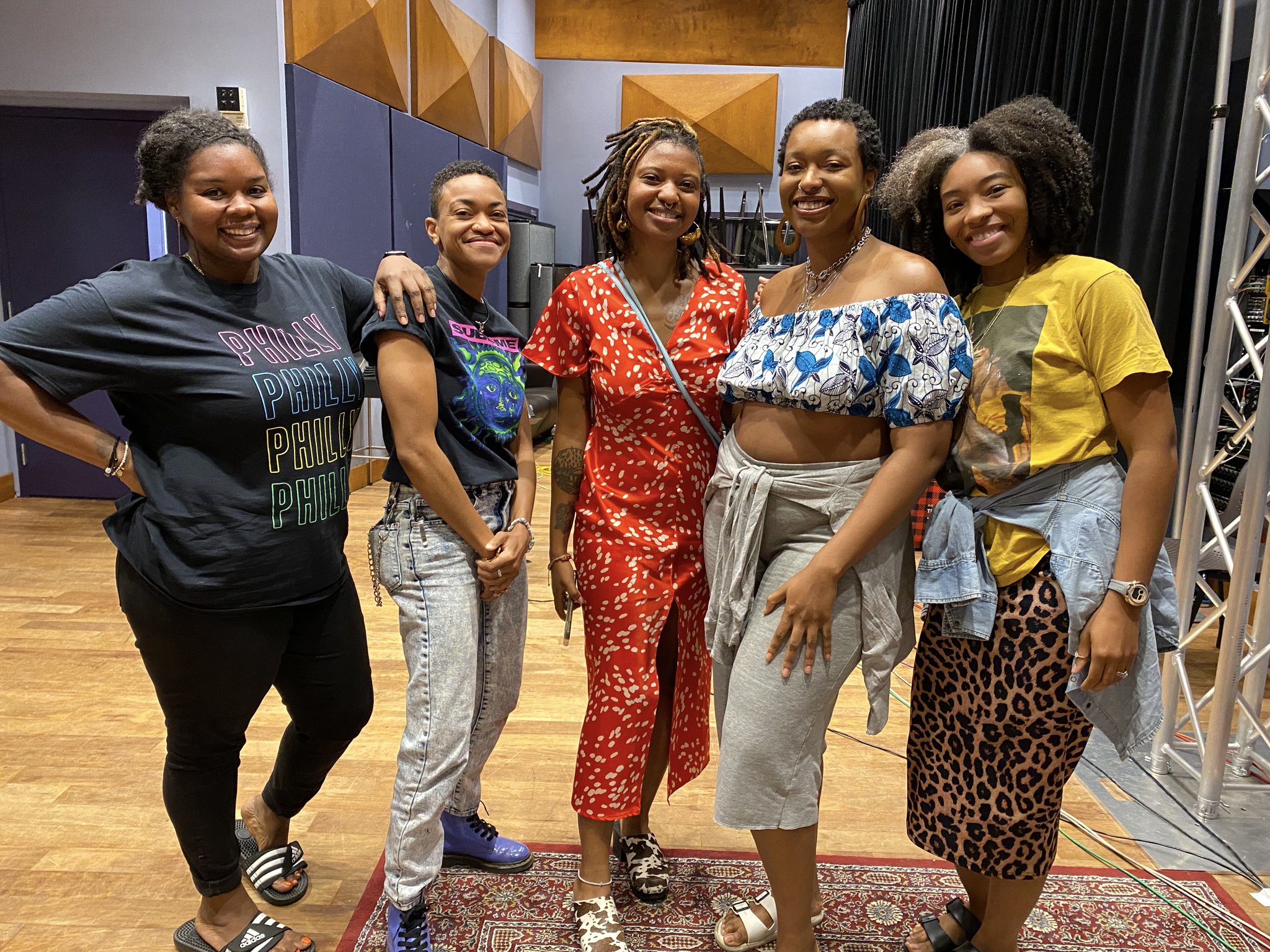What is it that makes Jill Scott quintessentially Philly?
EB: “It’s her style, her grace, her presence. Her confidence, the way she moves. Her body. She is Philly to me. Period.”
SD: “One of the things that drew me here, in the music scene especially, is that the musicians are all very unique and different, and they let that lead them. And that is absolutely what Jill Scott does. She’s not trying to conform to anything. She is absolutely who she is, her music really speaks for itself. I could meet her one day, but also if I never do, I feel like I know her.”
KL: “Jill is honest, and that is what I most love about her. Making that transition to being on the east coast after living in the midwest…and the midwest is really nice. I feel like the general sense is like everyone’s nice, you get along to get along to get along, you say what you need to say and move on, people don’t get to deeply into what their issues are, you put this facade on like everything’s good. And coming to Philadelphia was so refreshing, it’s like a breath of fresh air to have people curse at you and tell you the uncomfortable truths. That was JIll to me. She’s talking about everything, she’s talking about a range of things. And she knows what tone to deliver it to you so you best receive it.”
EP: “As I see more of Philly as time has passed, I understand the diversity, not by demographic but I’m talking about architecturally. The landscape, and how quick it can switch up, too. So what makes Jill Scott uniquely Philly is just how Philly looks. Jill is adaptable but consistent and I think that’s what Philly is as well.”
QR: “Jill Scott is kinda hood, and I like that. I feel like I’m also hood, and I’m artsy, and she’s sweet and she’s cool and I like that in other Black femmes I meet in Philly, who are from Philly. It feels like a kinship between the South Side of Chicago girl and the North Philly jawn as they might say.”
Is there space and resources in the Philly scene for an artist to ascend today in the way Jill Scott did?
EB: “Yes, absolutely. We have so much talent here in Philly. Some that are going to have their own unique styles but there’s definitely room for another Jill, inspired by Jill.”
SD: “The music scene right now is extremely collaborative and I think that was a big part of why Jill Scott was able to shoot off into the stratosphere – because she has amazing players who were doing their thing, working with each other, and that’s exactly what Philly is to me right now.”
KL: “When I think about the time [Jill Scott came up], we didn’t have cell phones the way we do, we didn’t have social media the way we do. And to me, that synergy of people actively and intentionally connecting around something without your phone that’s always having you on the pulse. You just connected with the people, you saw them, they were in front of you. I would love and hope that’s happening now, that artists are able to step away from the things that pressure us to perform a certain way. I think about Jill Scott’s path, and I think The Roots, they were creating something together that they believed in, and everyone jumped in on it. I would love to see that energy.”
EP: “The saying is if you want to find success, you need to move out of where you used to live, move out of your hometown. It seems to me that people want to support you when you’re already supported. But the truth of the matter underneath that layer when you dig deep enough, when you’re being honest, when you’re being accountable, when you’re actually showing up as yourself is that people are going to support you if you’re supporting yourself, if you’re putting yourself out there. So I do think there’s means for it to happen again.”
QR: “The interesting thing about Black women and femmes in pop culture is that they kind of have to be uniquely different from one another in a kind of a really extreme way. And so I think Jill Scott said it on The Breakfast Club, if you’re in the room just be in the room. So if you’re in the room, why be the next Jill Scott in the room, be your own person. So I would say no, we don’t need another Jill Scott, ‘cause we have Jill Scott. We need other people who are not Jill Scott.”
Ebony, Sug, Kerrin, Eboni, and Qiaira will present their projects in person at the Black Music City Juneteenth Celebration, a culminating event for this year’s project held this Sunday, June 19th, at World Cafe Live. The event is FREE to attend, and will be video webcast as well on WXPN’s YouTube page. For more information and to RSVP, go here. Below, listen to a Jill Scott essentials playlist compiled by our panelists.

